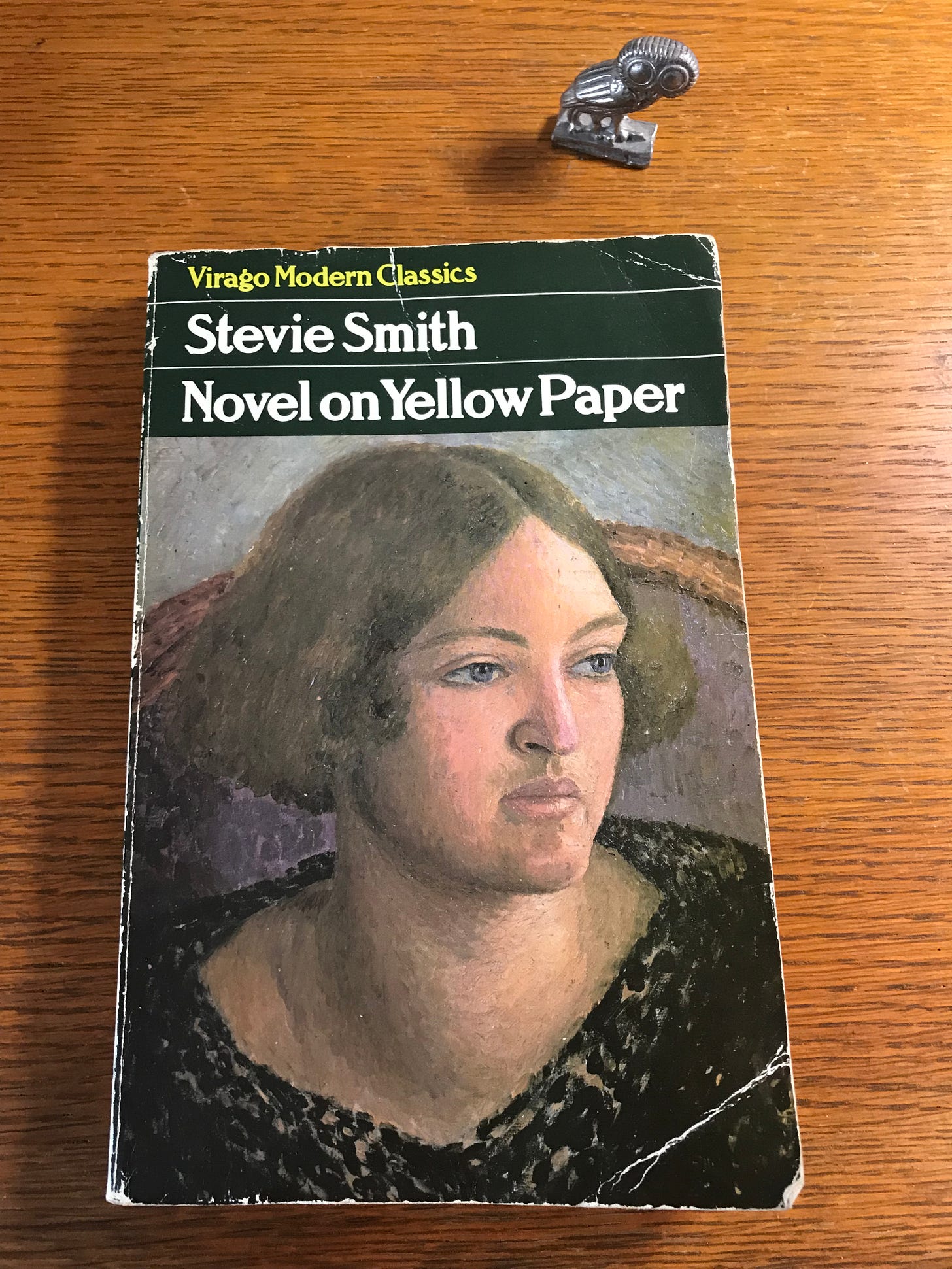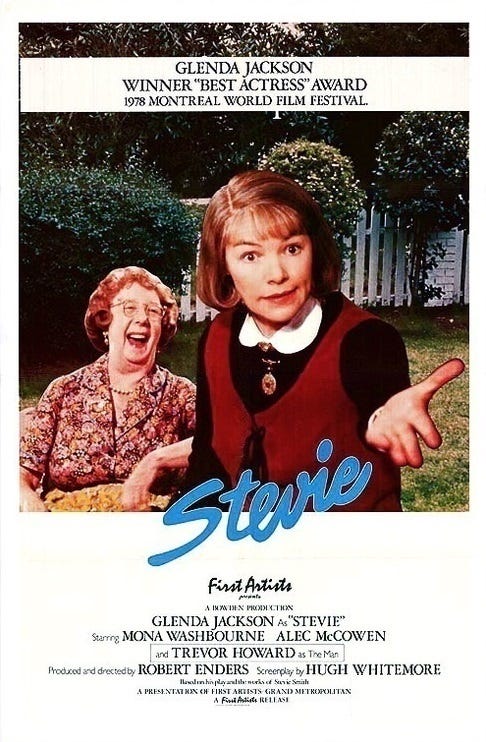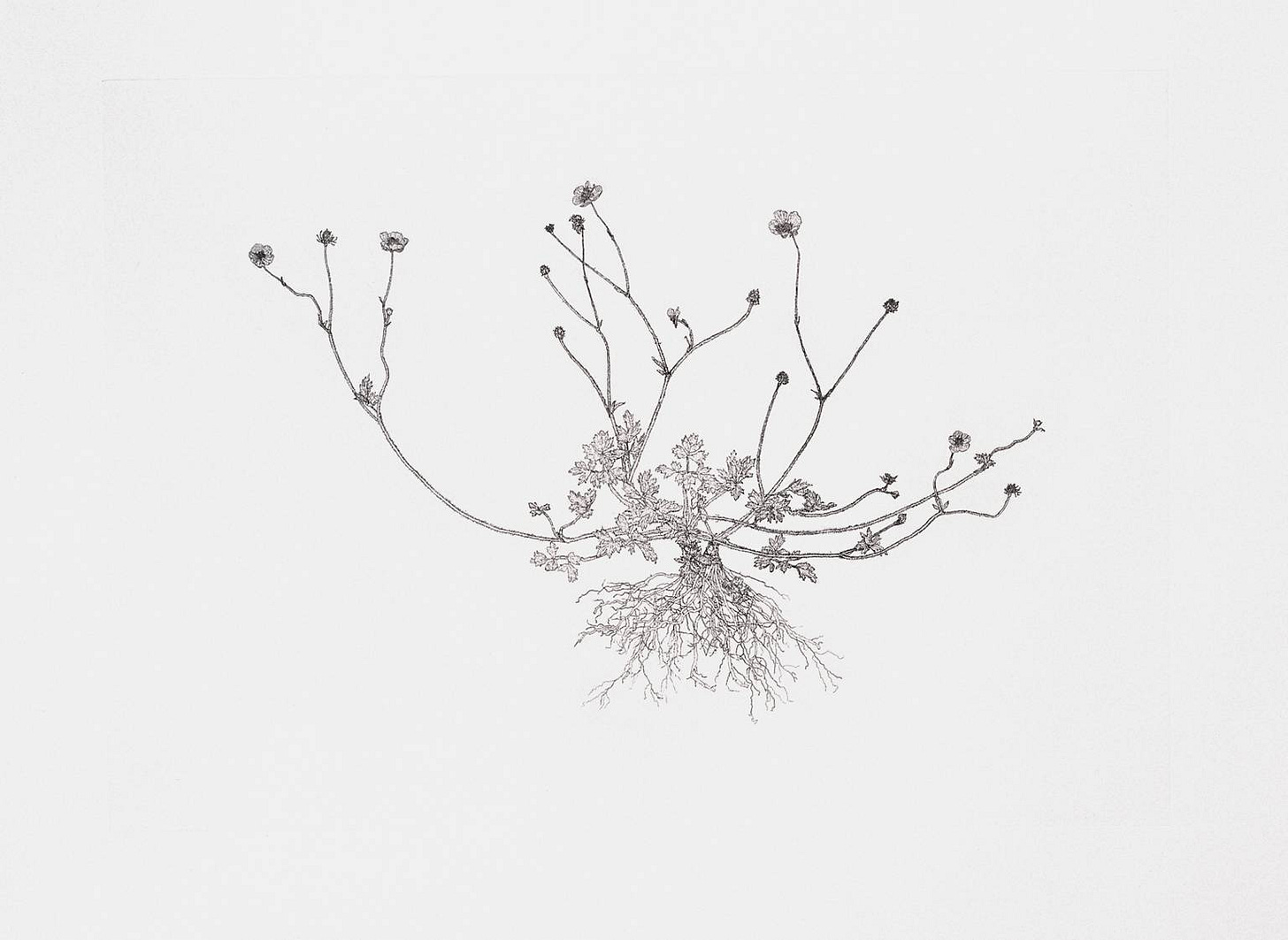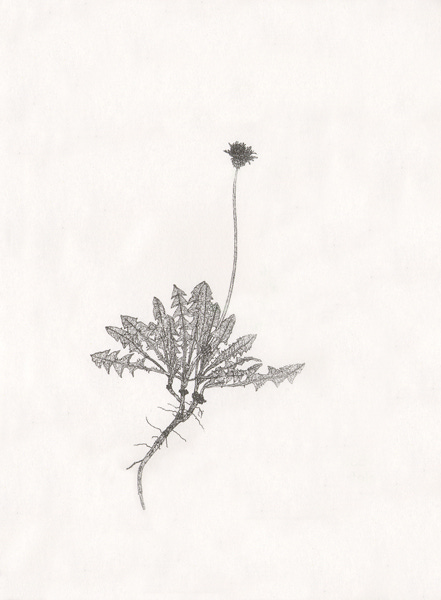Foot-Off-The-Ground
I first tried to read Stevie Smith’s Novel On Yellow Paper years ago, when I was a teenager or certainly not much later, and it didn’t take. I think now that was because I didn’t know enough, as I’ll explain. I read it this week and took to it very much - its a very vocal, personable, first-personable, book and so the sensation was really that we took to each other. Meanwhile, the world echoed my current interest in Smith: there was a very enjoyable In Our Time about her broadcast yesterday. (In Our Time: Stevie Smith).
I thought I’d just talk through my reactions to the novel, a strange and unique novel, forceful with the force of meeting an unusual person.
Firstly, there is the pleasure of it being a Virago Classic in its dark green uniform that assures you that the book is worthwhile, excellent at least, and probably previously undervalued, a situation Virago is now correcting. Novel On Yellow Paper wasn’t under-appreciated at the time of its publication in 1936, (Naomi Mitchison called it ‘a work of genius’) though Smith’s reputation dipped and crested once or twice after. This Virago edition arrived in 1981, a few years after a play, called Stevie, about Stevie Smith in the Palmer’s Green house she shared with her adored aunt, (“The Lion Aunt,” Smith called her), had solidified Smith into a lovable national figure of a familiar type, the headstrong, eccentric spinster. The play was adapted into a film of the same name in 1978, the year after its stage premiere, with Glenda Jackson as Stevie and Mona Washbourne as the aunt, both of whom won a bunch of awards and nominations for their performances.
Also implied by a Virago Modern Classic is, I think, a certain range - of emotion, of thought - within which this novel will fall. I associate them (positively!) with a kind of safe, mid-century restraint, a Radio 4ish civility, an afternoon play atmosphere of British women suffering and coping with a certain stoicism. This is possibly unfair of me - it’s certainly not true of all their books - I’m just speaking, as a market researcher might want me to, about the associations I have with the brand. Novel On Yellow Paper certainly does involve a British woman suffering and coping but her manners, her social acceptability, her capacity to be precisely that kind of stereotyped Radio 4 drama, sighing suburban woman I’ve invoked is very much the question. Back to the book.
The title. Novel On Yellow Paper. This title gives so much. There’s the immediate pleasurable flush of colour. There’s the self-consciousness: this is a novel that calls itself a novel. There is the hint of context, that this novel was written on office paper, in spare or stolen time. It suggests that the novel is an informal aside, as a friend might turn to you in the middle of something and say ‘I must tell you …’ It’s a neat prelude to a voice that is going to be very confiding. There are many moments in the novel when the narrator, who calls herself Pompey Casmilus, turns to the reader and speaks to them directly. This elicits a strong sense of confederacy, of what we might now glumly call a ‘parasocial relationship.’ It made me think of Fleabag turning to look through the camera at us to explain and joke about what’s going on. (I recently rewatched Fleabag and liked it I think even more the second time round).
But.
Immediately we are inside Novel On Yellow Paper we are up against talk about “the Jews.” It turns out not as sinister as it might be but it’s always uncomfortable, and how often you have to take it, how often I as a Jewish reader have to take it like a mouth full of seawater, when Henry James or H.G. Wells or Katherine Mansfield or Oscar Wilde writes something stupid and nastily racist about Jewish people. Well, that’s how it is with English (and other) literature. Pompey is out horse riding with a Jewish friend on the Row. This is one of those moments when my lack of general knowledge on first attempting the book would have been a problem. The row is Rotten Row, the long bridle way in Hyde Park. I know this now, partly thanks to one of my favourite books, D.H. Lawrence’s novella St Mawr which has some significant scenes on Rotten Row, but on first reading I wouldn’t have known where I was, just that I was with Pompey out riding and she suddenly started going on about how ‘A clever goy is cleverer than a clever Jew.’ Weird nonsense. However, her Jewish friend Leonie is slim, chic and elegant, and later Pompey’s Jewish friends are practical and generous, and other qualities usually not allowed by the antisemitic imagination, so we’re not dealing with Bleisteinish caricatures but the sometimes unfortunate, not malicious thoughts of a person in the nineteen-thirties soaked in a mad discourse of Jews and non-Jews, of Nordics and Asiatics and all the rest of it. ‘Well all to say about the Jews has been said, so I’ll leave it,’ says Pompey. You almost feel sorry for her. But then she doesn’t quite leave it.
There’s a paragraph ten pages or so on from this that struck me as a good encapsulation of the character of much of the novel, at its lightest, most freewheeling.
‘Things being as they are nowadays, naturally you cannot live on for ever like this. [She has been talking about living on friends’ hospitality]. Though a few years back, well say after the war, there was Cyril the Sponge who was real cunning and made a whole time job of it. But then when you get that way you have no real freedom for soul communing as I do. Take this Cyril for instance. He was the cousin of mine from the U.S.A. that married a girl, as she was then, in 1920, it may have been. Well this girl was christened Gladys, but of course that wouldn’t do. So later on she got herself called Prunella, which is a whole lot better, though linking up, by the tyranny of the association of ideas, like I read in Max Nordau, with intestinal stasis. And what do you know about that, Mr. Arch-Enemy-Of-Elimination-Celia-Celia-Celia-Swift?’
The word that came to mind was ‘dotty,’ a British colloquial term meaning eccentric that is a decent visual image, now I think about it, of the jumps and small pieces, the associative patterning of an unruly mind. It is a patronising word, and I don’t intend that here at all. What makes for the dottiness here is a racing quickness of thought and richness of reference. The Mr. that the paragraph addresses at its end is Jonathan Swift, another thing I didn’t know when I first tried this novel, and his poem of female bodily disgust, The Lady's Dressing Room, that can’t cope with the fact that ‘Oh, Celia, Celia, Celia shits!’
This is the kind of thing that happens in a ‘foot-off-the-ground novel’ by someone who reads so much. Later there are discussions of Racine and Lawrence, and Tennyson appears a few times: ‘Reader, do you ever feel sea-sad, loamishly-sad, like Tennyson, with that sadness too deep for words? Though of course nothing is too deep for words for a poet like him and me.’ This novel is fine company for the loamishly-sad. ‘How richly compostly loamoshly sad were those Victorian days, with a sadness not nerve-irritating like we have today. How I love those damp Victorian troubles. The woods decay, the woods decay and fall, The vapours weep their burthen to the ground, Man comes and tills the field and lies beneath, And after many a summer dies the swan. Yes, always someone dies, someone weeps, in tune with the laurels dripping, and the tap dripping, and the spout dripping into the water-butt, and the dim gas flickering greenly in the damp conservatory.’
By now you will have got the idea and won’t need the word of warning: ‘This is a foot-off-the-ground novel that came by the left hand. And the thoughts come and go and sometimes they do not quite come and I do not pursue them to embarrass them with formality to pursue them into harsh captivity…And if you are a foot-on-the-ground person this book will be for you a desert of weariness and exasperation. So put it down. Leave it alone. It was a mistake you made to get this book. You could not know.’
And you will have observed by this point that ‘this book is the talking voice that runs on, and the thoughts come, the way I said, and the people come too, and come and go...’ and you won’t be surprised when Pompey utters poems instead of paragraphs, like a person bursting into song. Novel On Yellow Paper exists, in fact, because Stevie Smith was told when trying to get her poems published to go away and write a novel. This she did, and included some of her poems in it, telling the reader that they were lucky to be getting the first look at them.
So where else do we fly with feet off the ground, who else comes and goes? There is a long excursion into Germany which is gradually and increasingly horrifying as Pompey takes in ‘all that dream darkness, like the forests had got hold of them again’ of the Nazi period. ‘Oh how I get that feeling of cruelty in Germany, and the sort of vicious cruelty that isn’t battle-cruelty but doing people to death in lavatories.’ I thought here of D. H. Lawrence’s ‘Letter From Germany’ and wondered if Smith had read it. I imagine she probably did. Lawrence’s letter was written in 1928 but published by the New Statesman in 1935 when Novel On Yellow Paper was coming into being. I first came across it in an excellent little Lawrence miscellany published by Everyman in 1939.
The early date of Lawrence’s letter makes it feel prophetic, spookily sensitive, while Pompey is providing a different kind of reportage. Lawrence intuits a change deeper than any event. It is remarkable in a way that only Lawrence is remarkable. Here’s a taste:
‘The moment you are in Germany, you know. It feels empty, and, somehow, menacing. So must the Roman soldiers have watched those black, massive round hills: with a certain fear, and with the knowledge that they were at their own limit. A fear of the invisible natives. A fear of the invisible life lurking among the woods. A fear of their own opposite.
So it is with the French: this almost mystic fear. But one should not insult even one’s fears. Germany, this bit of Germany, is very different from what it was two and a half years ago, when I was here. Then it was still open to Europe. Then it still looked to western Europe for a reunion, for a sort of reconciliation. Now that is over. The inevitable, mysterious barrier has fallen again, and the great leaning of the Germanic spirit is once more eastwards towards Russia, towards Tartary. The strange vortex of Tartary has become the positive centre again, the positivity of western Europe is broken. The positivity of our civilisation has broken. The influences that come, come invisibly out of Tartary. So that all Germany reads Men, Beasts and Gods with a kind of fascination. Returning again to the fascination of the destructive East, that produced Attila.
[…]
But at night you feel strange things stirring in the darkness, strange feelings stirring out of this still unconquered Black Forest. You stiffen your backbone and you listen to the night. There is a sense of danger. It is not the people. They don’t seem dangerous. Out of the very air comes a sense of danger, a queer, bristling feeling of uncanny danger.
Something has happened. Something has happened which has not yet eventuated. The old spell of the old world has broken, and the old, bristling, savage spirit has set in. The war did not break the old peace-and-production hope of the world, though it gave it a severe wrench. Yet the old peace-and-production hope still governs, at least the consciousness. Even in Germany it has not quite gone.
But it feels as if, virtually, it were gone. The last two years have done it. The hope in peace-and-production is broken. The old flow, the old adherence is ruptured. And a still older flow has set in. Back, back to the savage polarity of Tartary, and away from the polarity of civilised Christian Europe. This, it seems to me, has already happened. And it is a happening of far more profound import than any actual event. It is the father of the next phase of events.’
Pompey’s horror at Germany and her reliance there on the hospitality of her Jewish friends in Berlin make her think about her antisemitism. ‘So presently the train got well started up, and I sat back and, and I felt real wicked the way I had felt about the Jews myself. As if that thought alone might swell the mass of cruelty working up against them.’ After these reflections, Pompey comforts herself with reading. She immerses herself in a fellow passenger’s copy of Lady Chatterley’s Lover. I don’t know if this would have been shocking at the time. Presumably she would have been reading the expurgated 1932 edition, safe for polite consumption. But it consorts with some honest and unguilty writing about sex through the novel. There is friendly sex with a lover whose marriage proposal Pompey eventually refuses. She cannot concede to marriage. She is too feral, too resistant to absorption into an ordinary married life and its rules, too in need of solitude. She cannot be otherwise, it seems. This is a reassuring and repeated thought: ‘I often think of Alice, and how she was glad she was not Mabel, and how for one dreadful moment she thought she was going to be Mabel. But that is just one thing we don’t have to worry about. In our calm and reasonable moments we don’t have to worry about that. There are enough hazards in life and death, but Alice can never be Mabel.’
Other friendships are recorded. All personages are vivid mobile. There is a great celebration of the aunt. Late in the novel, Pompey’s mother dies:
‘… about this time when it was cold and dark and damp and February my darling mama died.
What can you do? You can do nothing but be there, and go on being there steadily and without a break until the end. There is nothing but that that you can do. My mother was dying, she had heart disease, she could not breathe, already there were the cylinders of oxygen….’
I find this unadorned frontal directness of voice, without bounce, without dottiness, very moving, very convincing. Pompey is always honest and will never lead you wrong, even as she exalts, breaks into poetry, and flows from thought to thought, friend to friend. The book is rich and vivid and as much its own thing as a lion is. It will keep you entertained. Pompey is always saying something.
Little Weeds
One thing led to another on the internet this week and I found myself reading Peter Schjeldahl’s New Yorker review of the Sensation exhibition of 1999, the famous Charles Saatchi anthology show of Brit artists. Peter Schjeldahl died in October of last year and was much mourned. This review is a good example of what was lost. His judgements of the various artists are very acute, seeing instantly the delicate and rhapsodic in Chris Ofili’s painting of the Virgin Mary that caused a (possibly predictable) controversy by virtue of its use of elephant dung among its mixed materials. I think he was right that the Chapman brothers played with things they didn’t really understand, or even try to understand really:
‘I despise the Chapmans’ work. I don’t trust that they know half of what they are dealing with in presuming to advance themes of childhood and sex. Forget gross. I believe that the Chapmans’ work is stupid—unlike that of Hirst and Lucas, with whom I feel in excellent, though unkind, hands.’
And I think he was right to that Damien Hirst at this time was ‘some sort of great artist. His improbable balancing of brutality and finesse will thrill you if you can stand to let it.’ There’s a lot of qualification in that ‘some sort of,’ of course. I think Hirst was in the brilliantly controlled assault of his work, the tight, brutally corporeal reductio in the glass cases containing rotting cow’s heads and generations of maggots, flies, flies dying against those blue electrified lights. Schjeldahl saw the mordant humour in the Sensation work, the morbid high spirits. I remember seeing Sensation in London in 1997. It was entertaining, flamboyant, theatrical. None of it is among my favourite works of art but it was certainly a great afternoon out. There was energy there.
Schjeldahl’s final paragraph is sharp, his grasp of the whole culture easy and authoritative:
‘It has been said that London in the nineteen-nineties is New York in the eighties—history repeating itself as farce. By all accounts, however, the scene-makers over there are having a far better time of it than many of us did here in the viciously competitive, money-maddened, cocaine-fried eighties. This may be because the Brits have a real handle on a real conundrum—which is, roughly, how to square the special and contrarian nature of artists with the bland and complacent character of a vastly expanded audience. The two can’t be squared is the British short answer. The long answer is that a high old time can be had when the situation is exacerbated as mordantly and inventively as possible. Like the honk of a foghorn in the night, the sound of an occasional exploding fatmouth indicates that these artists’ course is dangerous and true.’
The “Brit artist” who appeared in Sensation who has meant most to me subsequently is not mentioned by Schjeldahl. He is Michael Landy, most famous for Break Down, when he hired an empty retail unit in Oxford Street and staged the physical destruction of everything he owned. Afterwards, Landy had no possessions. It may be no surprise that more recent Landy work has been preoccupied with the lives of the saints. His humility concedes perspectives very different from that of Damien Hirst, the overbearing impresario with his diamond skull. I love a set of drawings Landy made of common weeds, in a simple botanical style, and the spirit of this project of paying attention to the beautiful, the modest and unwanted or ignored.
He also once installed a replica of the house where he grew up in Tate Britain. This was rather startling to me. It was almost exactly the same as the house where I spent most of my childhood, just down the road from the Landy family’s Ilford home. The contextual defamiliarisation was a great effect.
Youtube Treasure #6
Something for Valentine’s Day week. One of György Kurtág’s Bach transcriptions for piano four hands, played by him and his wife Marta.
Weather Diary
Some missing days to start the week, due to a saving error.
February 12th
2 degrees. Mostly a covered sky with a high cold wind, but sometimes in the afternoon the wind blows the clouds open and light pours through the blue and there’s a kind of slow flash photography as the tree trunks, green with winter damp, glow against the sky, until the cloud shutters close again.
February 13th
7 degrees. Clear skies. Sun. Spring getting to grips. Birds busied by the warmth. I think of that phrase in Christopher Smart’s poem about his cat, Jeoffry: ‘brisking about the life.’ Today is brisking about the life.
February 14th
7 degrees. More constant radiant sunlight. Leonardo wrote ‘The sun has never seen a shadow.’ But we’re down amongst them, the grass tigered, the streets striped with black shapes of bare branches.
February 15th
15 degrees. Unseasonal heat. A disorder of too much energy. Yeasty clouds all morning and the wind rising and rising until its tearing matter out of the trees and hurling it, thrusting bins down the street.
February 16th
2 degrees. A dull, errand grey. A day for box store shopping. A day for hospital car parks. A day of headaches caused by the sudden pressure change. And then at night a spasm of white lightning, thunder, and freezing rain coming down hard.
February 17th
-6 degrees. A thin snow blasted over surfaces. The sky blue and white and very cold; a cold regression in the air. The freezing rain has left many small trees iced and shining in every detail, temporary chandeliers.








Thank you for this peek into Novel on Yellow Paper. I don't think I will ever forget the possiblity of one day becoming "loamishly sad". It almost sounds like good old-fashioned fun!